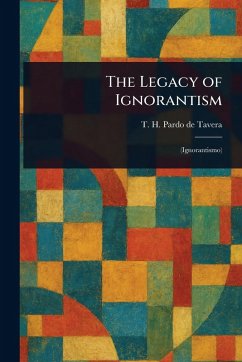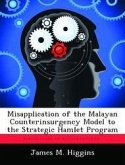"The Legacy of Ignorantism," by T. H. Pardo de Tavera, offers a critical examination of the intertwined histories of the church and education in the Philippines. This meticulously prepared edition presents a foundational text for understanding the enduring impact of colonialism and religious education on Filipino society. De Tavera delves into the historical roots of educational practices, exploring their social and political consequences. A significant contribution to the study of Southeast Asian history, this work sheds light on the complexities of cultural and intellectual development within a colonial context. Readers interested in church history, Philippine history, and the sociology of education will find this book to be an invaluable resource for understanding the long-lasting effects of historical educational practices. This work has been selected by scholars as being culturally important, and is part of the knowledge base of civilization as we know it. This work is in the public domain in the United States of America, and possibly other nations. Within the United States, you may freely copy and distribute this work, as no entity (individual or corporate) has a copyright on the body of the work. Scholars believe, and we concur, that this work is important enough to be preserved, reproduced, and made generally available to the public. We appreciate your support of the preservation process, and thank you for being an important part of keeping this knowledge alive and relevant.
Bitte wählen Sie Ihr Anliegen aus.
Rechnungen
Retourenschein anfordern
Bestellstatus
Storno









